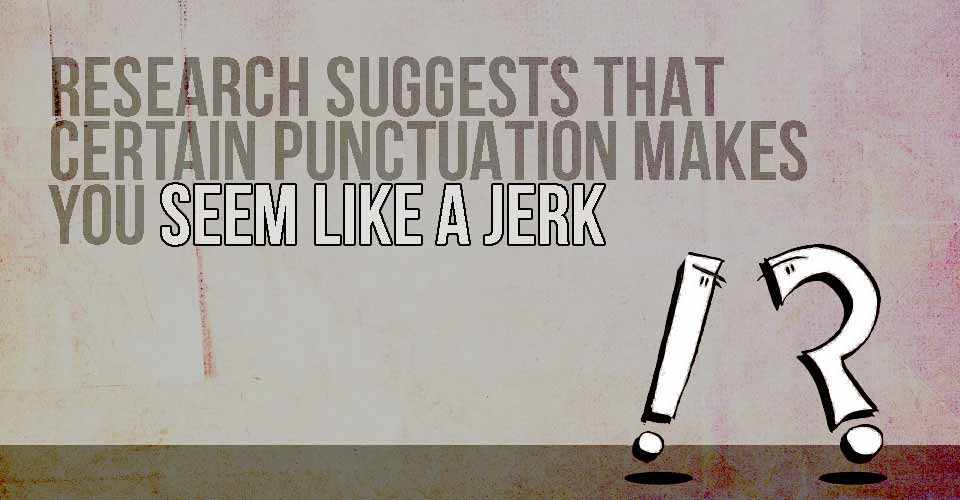
Texting has become the dominant form of communication for a lot of us these days. You have to admit, texting can be quicker, more concise, and more efficient. What texting cannot do is effectively convey emotion, sarcasm, or inflection. That we know of, that is. Apparently, according to new research from the UK, there is an aspect of texting that can unintentionally convey emotions that you might not intend to send: punctuation.
Celia Klin, a researcher at Binghamton University, did a recent study on people’s reactions to punctuation in text messages which was featured in the journal Computers in Human Behavior. Klin had 126 participants engage in one of 16 potential text exchanges designed by the researchers. The sender’s message was an introductory phrase followed by a question, such as “I have an extra ticket to the concert. Want to go?” The recipients of the text replied with a one-word response like “yes, sure, yup”. Half of the responders ended their one-word reply with a period, and half did not.
Read: Researchers Conclude: Cats Are Jerks!!!
When the participants rated the responses, they all agreed that responses that ended with a period seemed less sincere that a response that didn’t. Klin says, “Texting is lacking many of the social cues used in actual face-to-face conversations. When speaking, people easily convey social and emotional information with eye gaze, facial expressions, tone of voice, pauses, and so on. People obviously can’t use these mechanisms when they are texting. Thus, it makes sense that texters rely on what they have available to them: emoticons, deliberate misspellings that mimic speech sounds and, according to our data, punctuation.”
Read: According to Research: Money Can Make you a Jerk
In a follow-up study, Klin found that when people used an exclamation point in a text, they were seen as much more sincere. Klin explains, “That’s not surprising, but it broadens our claim. Punctuation is used and understood by texters to convey emotions and other social and pragmatic information.
Given that people are wonderfully adept at communicating complex and nuanced information in conversations, it’s not surprising that as texting evolves, people are finding ways to convey the same types of information in their texts.”


